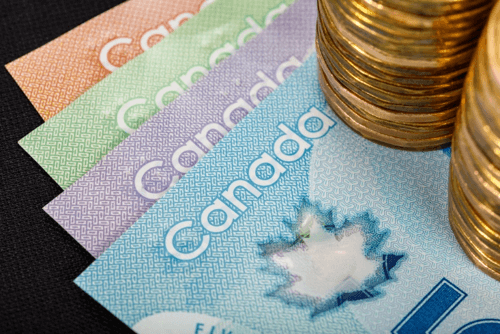
USD/CAD Dips to 1.3710; Key Indicators and Fed Comments
Quick Overview:
USD/CAD Exchange Rate stands at 1.3710, slightly down from 1.3719, with overnight fluctuation.
Reduced expectations for a Fed rate limit US Dollar recovery cut this year.
Initial Jobless Claims, Building Permits, Housing Starts, and Philly Fed Manufacturing Index to influence USD/CAD.
The USD/CAD exchange rate currently stands at 1.3710, experiencing a slight decrease from the previous close of 1.3719. The overnight trading range for the currency pair fluctuated between 1.3707 and 1.3727. In the early Asian trading session on Thursday, the USD/CAD showed signs of gaining traction. Thereby recovering modestly from a four-day losing streak. This recovery slowed down due to diminishing expectations of an imminent rate cut
Several economic events have shaped the USD/CAD exchange trend rate. Notably, weaker retail sales data from the US for May has heightened expectations for a potential rate cut by the Fed. The President of the Federal Reserve Bank of New York, John Williams, commented that interest rates would gradually decrease as inflation eases. However, Boston Fed President Susan Collins suggested it is too early to determine whether inflation is approaching the Fed’s target.
US Jobless Claims Expected to Drop from 242,000 to 235,000
Several upcoming economic indicators will influence the USD/CAD exchange rate. These include the US weekly Initial Jobless Claims, Building Permits, Housing Starts, and the Philly Fed Manufacturing Index. Additionally, a speech by Fed’s Barkin and the US Initial Jobless Claims, which are anticipated to drop to 235,000 from the previous week’s 242,000, will be closely monitored by market participants.
The Bank of Canada has recently expressed concerns about the downside risks and the growing divergence between the Canadian and US economies. On June 5, the Bank of Canada cut its policy rate from 5% to 4.75%. It marked the first rate cut in four years. Market analysts predict at least two more rate cuts by the end of 2023, with nearly 60% odds of a quarter-point rate cut in the upcoming July meeting. However, the Bank’s Governing Council has noted that monetary policy does not need to remain as restrictive. Therefore reflecting increased confidence in inflation moving towards the 2% target.
US 10-Year Treasury Yield Falls to 4.219% Amid Retail Sales Data
US markets were closed for Juneteenth Day, which affected trading volumes across various assets. The West Texas Intermediate (WTI) crude oil price stood at $80.60, while gold was valued at $2328.07. In the bond market, the yield on the US 10-year Treasury decreased to 4.219% from 4.292%. Right after indicating softer US retail sales data and dovish comments from Fed officials. Governor Adriana Kugler hinted at a possible interest rate cut later this year, and the CME Fedwatch tool indicates a 66% probability of a rate cut in September.
Analysis of Other Major Currency Pairs
EUR/USD: The EUR/USD trading range was between 1.0724 and 1.0747. The currency pair saw limited action due to the US holiday and the upcoming French election.
GBP/USD: The GBP/USD traded within the range of 1.2697 to 1.2738. The UK’s May Consumer Price Index (CPI) met the Bank of England’s target of 2.0% year-over-year, with a notable rise in the services inflation component to 5.7%, surpassing the BoE’s forecast in May. Economists at ING predict that the Bank of England will maintain current rates in their upcoming decision.
USD/JPY: The USD/JPY pair traded between 157.60 and 157.93. The lingering demand from the FOMC dot-plot projections influenced the pair’s movements, indicating one rate cut in 2024, offset by soft US retail sales data and a decline in the US 10-year Treasury yield. Japan’s trade data revealed mixed results, with exports growing by 13.5% year-over-year and imports rising by 9.5% year-over-year.
AUD/USD: The AUD/USD range was from 0.6654 to 0.6676. The pair was supported by soft US retail sales data and modestly hawkish comments from the Reserve Bank of Australia (RBA) meeting.


